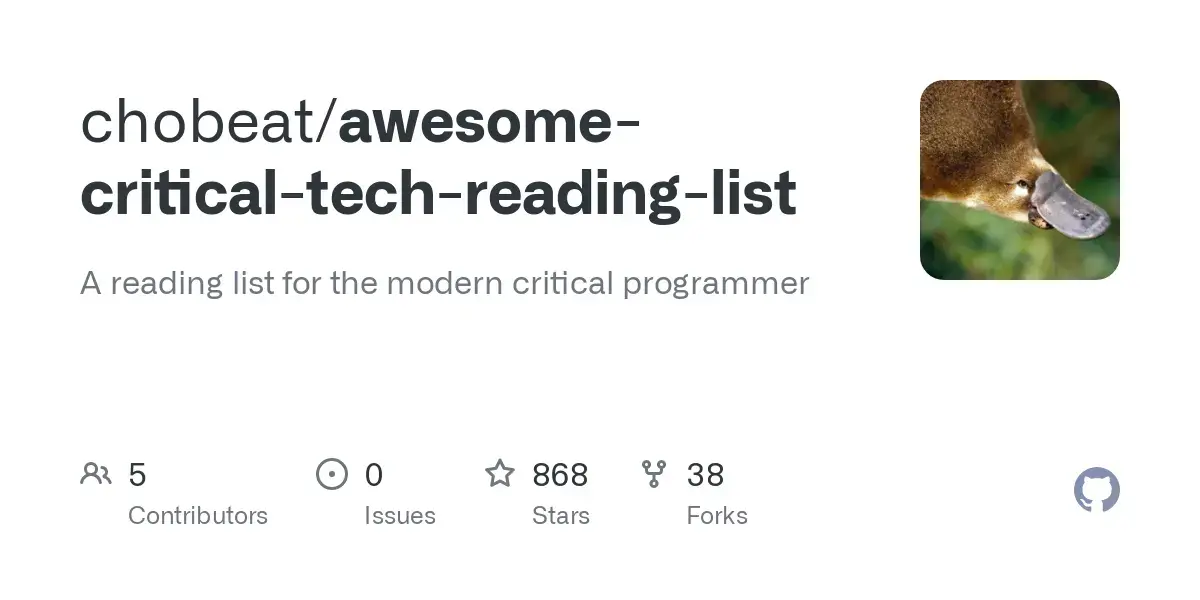- 12 Posts
- 32 Comments
I don’t keep anything relevant on my machine. It’s just a way to access data hosted somewhere more safe. Also files and folders are terrible ways to organize anything, even remotely like Google Drive or similar stuff. It’s Microsoft’s and Apple’s brainrot outliving the 90s. We should move forward.

 61·10 days ago
61·10 days agoDefinitely Instagram.
While Lemmy is slowly making a dent in my reddit participation, it doesn’t do much for other things. I’m involved in IRL politics, food, and the clubbing scene, all stuff that is almost completely absent on the fediverse, especially the American-dominated side of it.

 7·12 days ago
7·12 days agoA full wallet among other wallets, perfectly disguised. Somebody left it there a few hours before. It was a guy from Scotland on a trip with his friends who went shopping for party clothes. He answered on Instagram (after much stalking) at midnight when I was already inside a club and they were on their way to the club too. So we rendez-vous at 6 AM after clubbing because they had a train at 8AM for another city. They left some joints at my place as a thank you. Also offered some ketch for a, I shit you not, “crunchy landing”.

 197·4 months ago
197·4 months agoI feel like the last remnants of the New Atheists have retreated onto lemmy. Often when you reference spirituality, religion, or even reflections on group dynamics and psychology that doesn’t portray humans as perfectly rational self-interest decision-making machines, you get raided by these edgy “facts and logic” kids that are extremely annoying.
On reddit, they are contained in their own zoos, while here they seem to pile up even in generalist communities. It feels like 2012 all over again.
Politically, I don’t like him. He had a critical influence in the beginning of the Free Software movement, and its failure can be easily identified in the core ideas that put the freedom of the software before the freedom of the people. The fact he cared more about software than people is reflected in pretty much anything he did.
On a personal level, he seems an insufferable asshole with enough power to get away with toxic behavior. Luckily, I never had to interact with him, but his visibility for sure didn’t help marginalizing toxic egomaniacs in IT communities. Being neurodivergent is not an excuse for being an asshole. He’s the last remnant of an age that hopefully is over.

 81·5 months ago
81·5 months ago“debate me” kids are another stereotype on the internet though. The idea that ideas should be entertained and discussed for the sake of it and come without implications attached is just another form of edgyness. It’s another thing that often goes away with age or with touching grass. I know because I was one of them. Now I understand that the fact itself of discussing something publicly has moral implications.

 292·5 months ago
292·5 months agoLarping as a tankie is definitely a thing of immature, terminally online kids, but I wouldn’t throw Lenin in the bunch. While Stalin is mostly condemned as a reactionary psychopath by pretty much everybody except a few leftist basement-dwellers, Lenin is still read and taught throughout the world. Nothing edgy in reading Lenin.
Edgy kids on the internet worship other psychopaths like Pol Pot or Hoxha.

 2·5 months ago
2·5 months agoAdvertising works, nobody denies that. If you see enough ads, on average, your mind will be changed.
Can you point to scientific literature that does prove this statement?

 25·5 months ago
25·5 months agoMost people in the field don’t even ask themselves this question. They all have an incentive in believing it works.
There’s a book about it though: https://us.macmillan.com/books/9780374538651/subprimeattentioncrisis

 63·5 months ago
63·5 months agoA lot of coopyleft or p2pp projects adopt the license and it’s not discussed that much in the identity of the project.
I personally believe that software freedom shouldn’t come at the expense of people’s freedom, and I consider the FOSS movement a political failure because it’s completely incapable of mediating between the two things. New generations are growing more and more alienated from a movement they consider a relic of the past.
For my projects, I avoid FOSS licenses, but they are also not relevant enough to get insights from them.

 611·5 months ago
611·5 months agoSince here the answers are split between edgy kids and people repeating a bland, stale narrative about comfort and fear of death, I will try to bring a different perspective.
For context: I grew up in a Catholic country but in a very secular family and in a very secular region. I’ve had an edgy atheist phase that lasted between 8yo and probably around 30yo.
I studied a STEM discipline and have always been surrounded by mostly atheist or agnostic people.
I was afraid of death up until I was 27/28yo, but the cope was gnostic transhumanism, not Abrahamitic religions. At some point I took acid, my gf at the time told me I was going to die, I cried my eyes out for a few minutes and then I was fine and I’m still fine. I had a near-death experience in the hospital that further consolidated the idea that I’m going to die, and it’s chill: if you’re sick, you have a bunch of people looking after you, everybody gives you attention, you spend all your day chilling in bed on drugs. Dream
lifedeath.I was still agnostic at that point. I started approaching spirituality later on, not much because of an emotional need, but because further studies both in STEM disciplines and Philosophy highlighted the limit of reason to explain and understand the world. Reason is a tool among others, with its limits. Limits that can be reasoned about using reason itself. You cannot investigate or explain what lies outside though, let alone change it, something for which you need different tools: faith, spirituality, trust. I got closer to what Erik Davis calls “Cyborg Spiritualism”, but it doesn’t mean much since it’s not an organized movement, but more of a shared intuition and meaning-making process to which, in the last 60 years, more and more people arrived. Especially people dealing with disciplines like system theory, cybernetics, system design, and information theory, but also people disillusioned with the New Age movement or other Western Gnostic practices. Mixed in it there’s plenty of animism.
Atheists believe that all religions are about speaking to God, and hoping for an answer, while many religions are about listening to God because they are already talking to us all the time.

 13·5 months ago
13·5 months agoThe true path to Enlightenment prescribes not to argue with edgy 16 yo kids on the Internet. The New Atheist movement is dead, only edgy kids remain. No need to argue.
Not nation-wide, but definitely in California and he claimed that himself. Anyway, if you want to dig deeper: https://disconnect.blog/the-hyperloop-was-always-a-scam/

 41·8 months ago
41·8 months agoElectric vehicles are part of the problem. Definitely not part of the solution. Personal cars are incompatible with any realistic sustainability target. He actively sabotaged the development of public infrastructure to make profit out of his stupid cars. He’s evil as fuck.

 5·9 months ago
5·9 months agoI had to check urban dictionary to get the joke lol

 151·9 months ago
151·9 months agoMy girlfriend is a professional fermenter, so I have endless amounts of fermented sauces in my immediate surroundings.
I would say the most hyped one in her network is this strawberry gochujang she’s making.

 2·10 months ago
2·10 months agothey are also doing a whole flavor just for research-oriented social media, geared towards the OpenScience community and the academia in general. It will launch soon.
Then they have a whole set of collaboration tools and groupware, that now kinda incorporates the basic features of Trello and GitHub, but on top of a social media with granular permission systems. There the use cases are many more, but it’s also much more general-purpose than the research flavor. I think the end-game would be to have a platform that acts as a middleware and connect social life, gift-based collaboration, work and consumption in a single open platforms.
I also wrote an article envisioning a federated notion-like tool built on top of Bonfire, that clearly would allow to structure knowledge and implement no-code software on top of Bonfire, but clearly this would require a disproportionate effort for what the project is at the moment: https://fossil-milk-962.notion.site/Fractal-Software-for-Fractal-Futures-71e515597d6b424c994cae74f3341521?pvs=4

 5·10 months ago
5·10 months agoto a reasonably large audience
That’s a measure of success that makes sense only in a for-profit, growth-oriented environment. Software just has to be sustainable and “bigger” doesn’t necessarily imply "more sustainable.
That said, what is now possible with social media is extremely restricted and our idea of what a social media is is constrained by profit motives. Social media could be much more, connect humans for collaboration and exchange instead of data extraction. We are so used to the little crumbs of positive experiences on social media that we normalized it.
Bonfire, for example, if we want to stick to the fediverse, is trying to challenge this narrative and push the boundaries of what a social media is supposed to do.
Another space would be non-siloed notion-like tools.
Anothe entire can of worms would be to go beyond the “dictatorship of the app” and start building software and UX around flexibility and customizability for the average user, rather than keeping this a privilege for tools targeting power users. Flexibility in UX means harder trackability and less CTR, so most end-user “apps” avoid that.

 181·10 months ago
181·10 months agoNo more “alternatives” please. That formula has failed over and over again. We want software that can do what proprietary platforms do not pursue because it’s not profitable. Online spaces to build meaningful connections, have interesting conversations with like-minded people, discover new things, be free from trolls and toxicity, possibly without the guilt of polluting the hell out of this planet with hardware and excessive electricity consumption.











I’m sure an overworked rider struggling to get to the end of the month has time and money to spend on this just to get a basic right protected. Individual solutions to systemic problems never work.